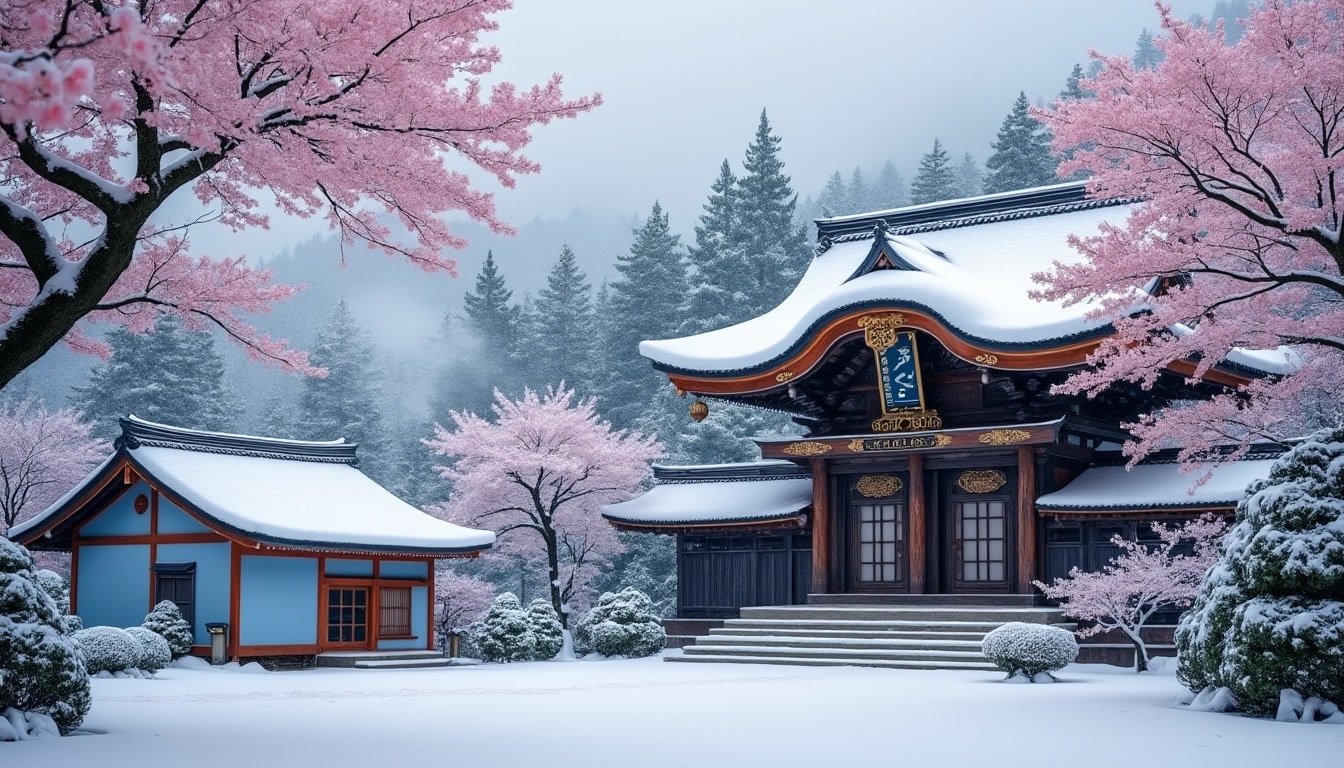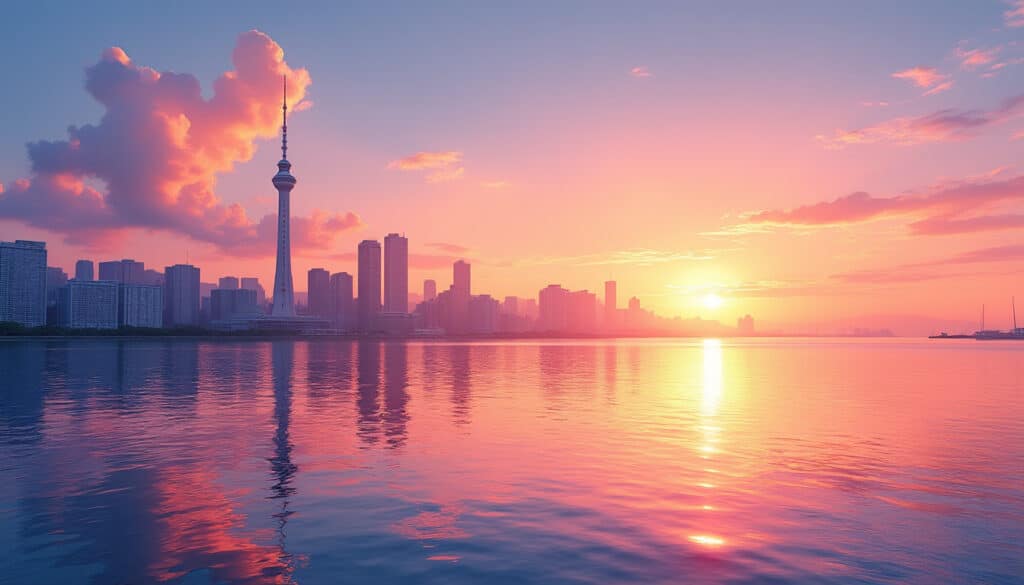Chiba is a region in Japan known for its mild climate compared to the colder, snow-laden areas of the country like Hokkaido or Nagano. While many associate Japan with heavy snowfall due to its famous ski resorts and snow festivals, Chiba offers a different winter experience. This article explores the weather patterns in Chiba, focusing on the likelihood of snow, the impact of its climate on local tourism, and the outdoor activities available throughout the year.
Chiba’s Climate: A Detailed Overview
Chiba, located on Japan’s eastern coast, experiences a humid subtropical climate. This means the area generally enjoys mild winters and hot, humid summers. The climate classification is crucial for understanding the low probability of snow in the region. Chiba’s winters are relatively temperate, characterized by an average temperature of about 9°C in January, the coldest month.
Rainfall is spread throughout the year, with the highest precipitation occurring during the typhoon season from June to October. However, winter months, specifically January and February, see the least amount of rainfall, typically around 41mm to 73mm per month. Despite this dry spell, January occasionally witnesses a light dusting of snow, though it’s far from the heavy snowfall witnessed in other parts of Japan.
| Month | Average High (°C) | Average Low (°C) | Rainfall (mm) | Snow Days |
|---|---|---|---|---|
| January | 10°C | 1°C | 41 | 0-1 |
| February | 11°C | 2°C | 73 | 0 |
Given these conditions, snow in Chiba is rare but not impossible. The region occasionally experiences flurries, especially in the northern parts bordering Tokyo, but significant accumulation is rare.
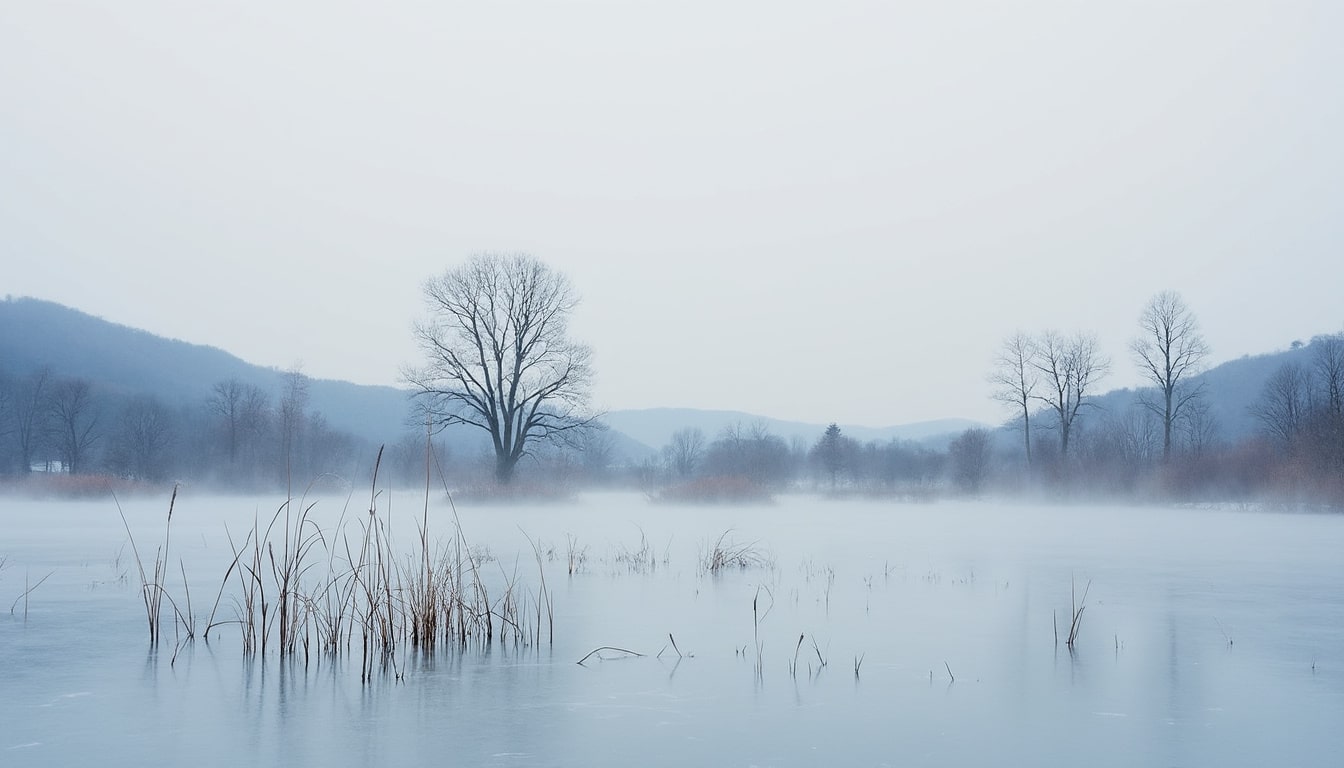
In terms of climate impact on the region’s flora and fauna, the mild winters allow many plant species to thrive year-round, maintaining a vibrant landscape that is quite different from the stark white scenes in northern Japan. This has a direct influence on local culture and events, which are less about the traditional winter sports and more focused on enjoying the outdoors without snowfall interruptions.
The Influence of Chiba’s Climate on Local Tourism
Chiba’s unique climate plays a significant role in its appeal to tourists. The relatively mild winters, compared to the harsh cold of other Japanese destinations, attract travelers looking for a more temperate experience. Unlike regions known for skiing and snowboarding, Chiba offers an opportunity to experience Japanese culture without the chilling bite of winter winds.
Visitors to Chiba during winter can explore several attractions without the hindrance of snow:
- 🌸 Chiba Floral Parks: Even in winter, flora blooms here thanks to the climate.
- 🛍️ Shopping Districts: Enjoy shopping experiences in warmer temperatures without the need for heavy winter gear.
- 🎋 Cultural Festivals: Seasons don’t halt Chiba’s vibrant festivals, showcasing traditional Japanese art forms.
For those interested in historical tourism, sites like Naritasan Shinshoji Temple and Chiba Shrine can be visited comfortably. The absence of snow makes travel easier within the city, reducing transportation delays that are common in snow-heavy regions. This weather also encourages participation in local events and festivals, which proceed unhindered even during winter, offering a full calendar of cultural experiences.
While snow lovers might miss the winter sports scene, the region’s climate supports a range of activities from hiking in the lush, scenic landscapes to exploring coastal views. Chiba’s milder weather ensures a pleasant experience for tourists not looking for winter sports, opening up experiences suitable for those preferring a mix of culture and comfort.
Learn more about cold weather activities in Chiba
Outdoor Activities Available Year-Round in Chiba
One of Chiba’s most appealing features is the wide range of outdoor activities that can be enjoyed regardless of the season. Unlike colder regions where activities are seasonal, Chiba’s climate permits year-round outdoor enjoyment.
Many tourists and locals take advantage of this and participate in activities such as:
- 🌿 Hiking: Trails in Chiba, especially in Boso Peninsula, are accessible all year.
- 🌊 Water Sports: The coastal areas offer surfing and swimming in the warmer months, with water temperatures staying comfortable even into late autumn.
- 🚴 Cycling: Flat, scenic routes around the prefecture are perfect for cyclists.
Table showing activities by season:
| Activity | Peak Season | Challenges |
|---|---|---|
| Hiking | Spring, Autumn | Humidity in summer |
| Water Sports | Summer | None, except typhoons |
| Cycling | Spring, Autumn | Occasional rainfall |
Chiba’s geographical features enhance its offerings—lush hills for hiking, scenic coastlines for water-related activities, and rural landscapes that are a cyclist’s dream. These features attract both casual visitors and those looking for a specific type of leisure, offering something for everyone.
Understanding Chiba’s Seasonal Weather Patterns
Chiba experiences distinct seasons, each bringing its own weather patterns and characteristics. Understanding these patterns helps in planning activities and can make visits more enjoyable.
Spring (March to May): This season sees Chiba transforming from winter to vibrant spring colors. Temperatures rise gradually, and rainfall increases, particularly in May.
- 🌸 Cherry Blossoms: These bloom during this time, attracting many visitors.
- 🚶 Comfortable Spring Hiking: With cooler weather and blooming flora.
Summer (June to August): Known for its high humidity and warm temperatures, Chiba during summer is ideal for beach and water sports enthusiasts.
- 🌊 Beach Activities: Ideal time for surfing and swimming.
- ☀️ Sunburn Caution: High UV index requires precautions.
Autumn (September to November): Offers a cooling relief with lower humidity levels, making it an excellent time for outdoor events and festivals.
- 🍁 Autumn Leaves Viewing: Popular seasonal activity with beautiful landscapes.
- 🎉 Festivals: The calendar is full with events such as the Chiba Urban Monorail Festival.
Winter (December to February): Winter is cooler, but not freezing, allowing outdoor activities to continue without the snow of other regions.
- ❄️ Mild Winter Days: No major weather disruptions for planned activities.
- 🚡 Cable Car Views: Take advantage of clear winter skies.
Explore seasonal activities in Chiba
FAQs
- Does Chiba experience heavy snowfall?
Chiba rarely sees significant snowfall. Any snow is usually light and quickly melts. - When is the best time to visit Chiba for outdoor activities?
The ideal time is during spring (March to May) and autumn (September to November) when the weather is mild, and activities are plentiful. - Are there winter sports available in Chiba?
Chiba is not known for winter sports due to its mild winters. - What should visitors pack for a winter visit to Chiba?
Visitors should pack layers, as temperatures can vary, and a waterproof coat for occasional rain. - Are there any local festivals in Chiba during winter?
Yes, Chiba hosts several cultural and traditional festivals even in winter, often centered around New Year celebrations.
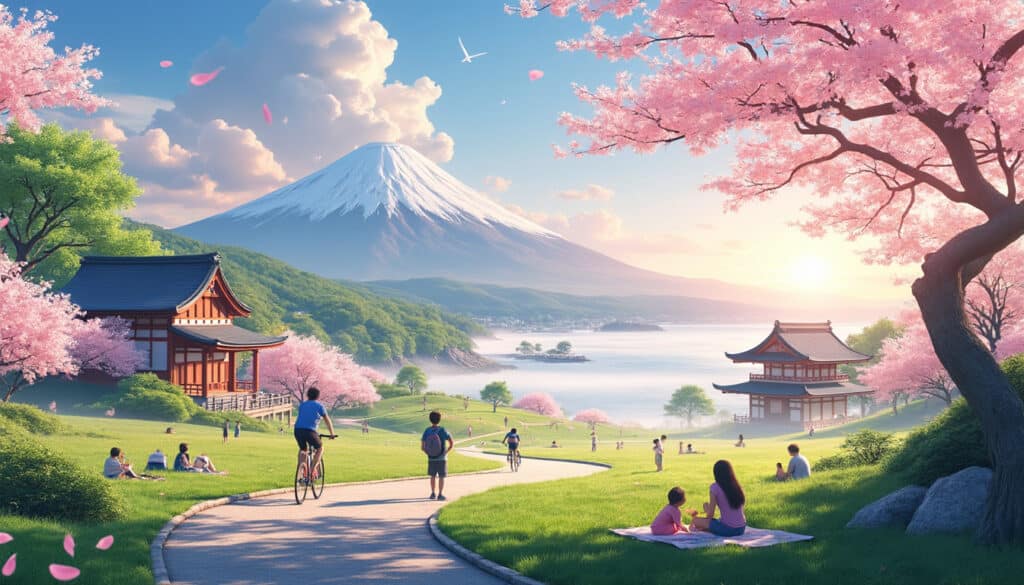
Chiba, a vibrant coastal city in Japan, is known for its unique climate and weather patterns that shape its landscape and lifestyle. Situated in the northern hemisphere, Chiba experiences a humid subtropical climate, which translates into mild winters and hot,…
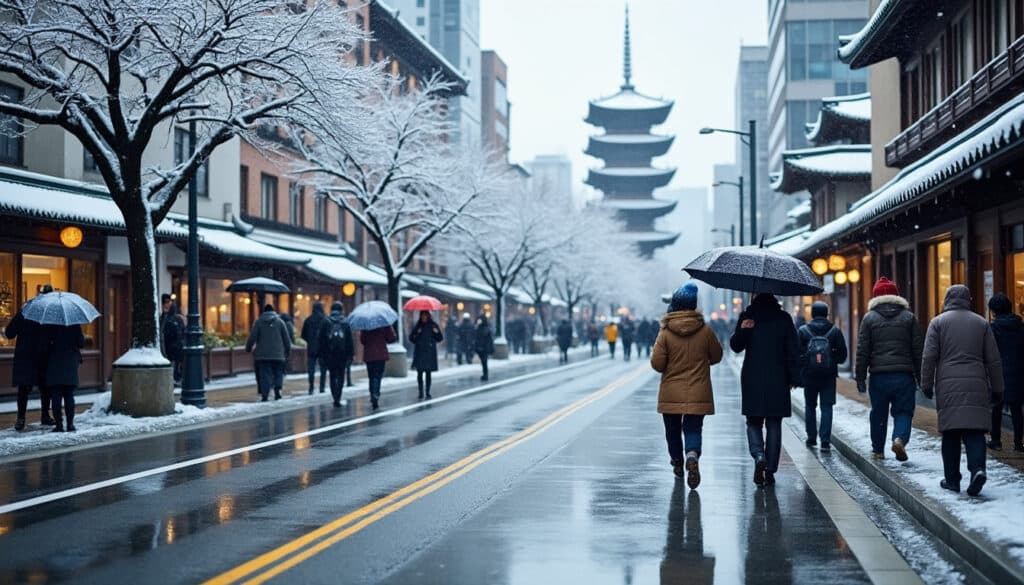
The cold season in Chiba brings a unique charm to this beautiful city in Japan, where the landscape transforms into a captivating winter wonderland. Nestled in the Kanto region of Honshu Island, Chiba experiences a distinct winter characterized by brisk…
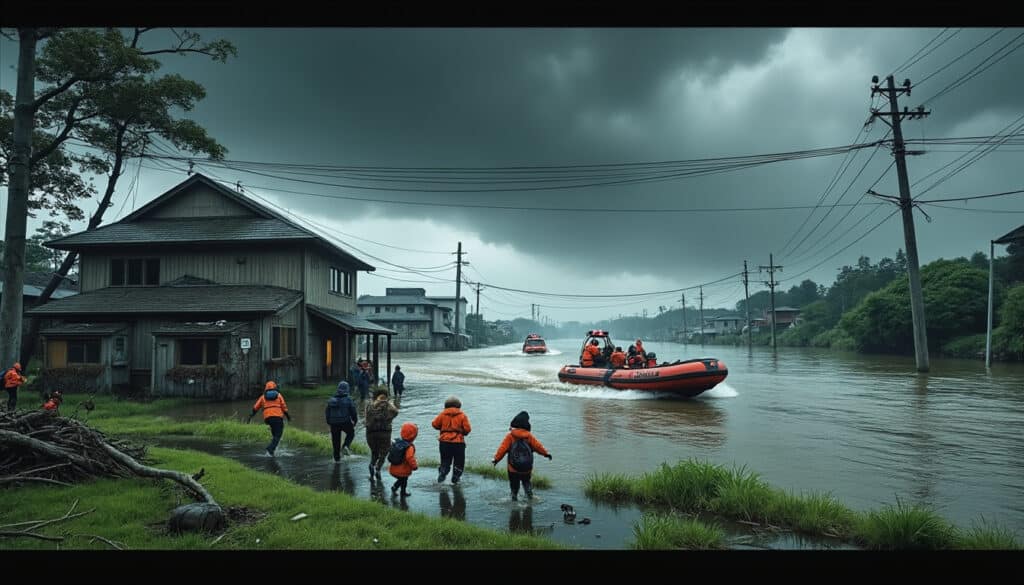
Flooding and natural risks in Chiba
The beautiful coastal region of Chiba, Japan, is renowned for its stunning landscapes and vibrant culture. However, being one of the prefectures at the curved edge of Honshu Island, Chiba is frequently exposed to a variety of natural risks such…
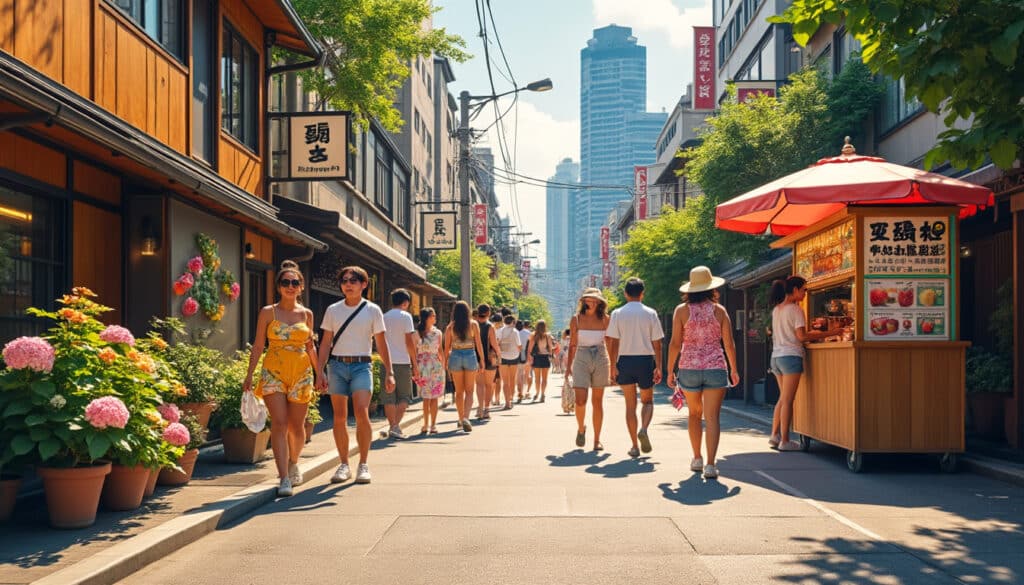
Chiba, a beautiful region situated near Tokyo, transforms into a warm haven as the summer season approaches. Famed for its rich history and vibrant local culture, Chiba attracts numerous visitors each year. However, the increasing temperatures have posed certain challenges…
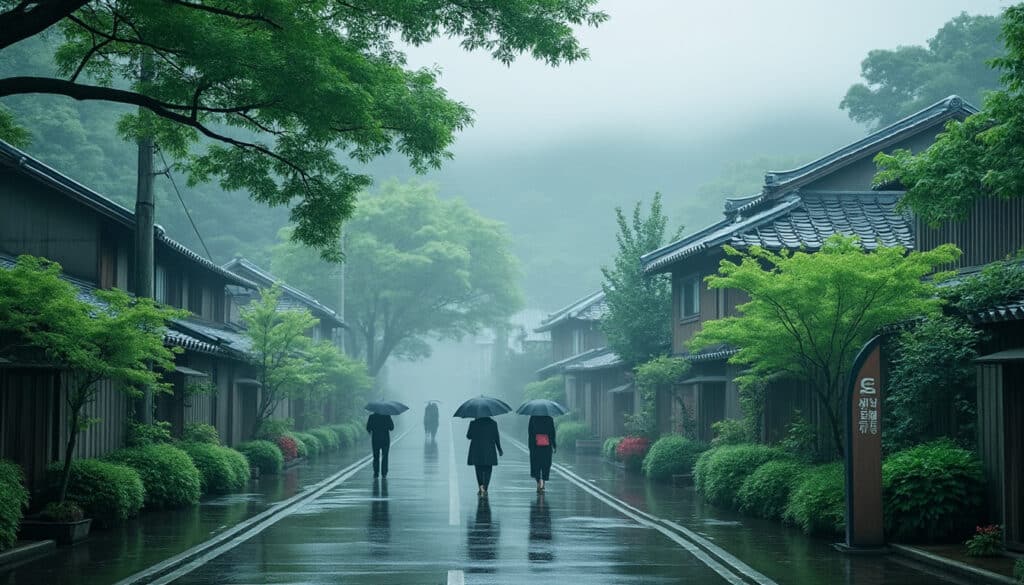
Chiba, a bustling city located just outside Tokyo, is renowned for its dynamic climate and significant annual rainfall. The region’s humidity levels are intriguing to both residents and travelers, influencing everything from daily life to architectural design. Understanding Chiba’s unique…
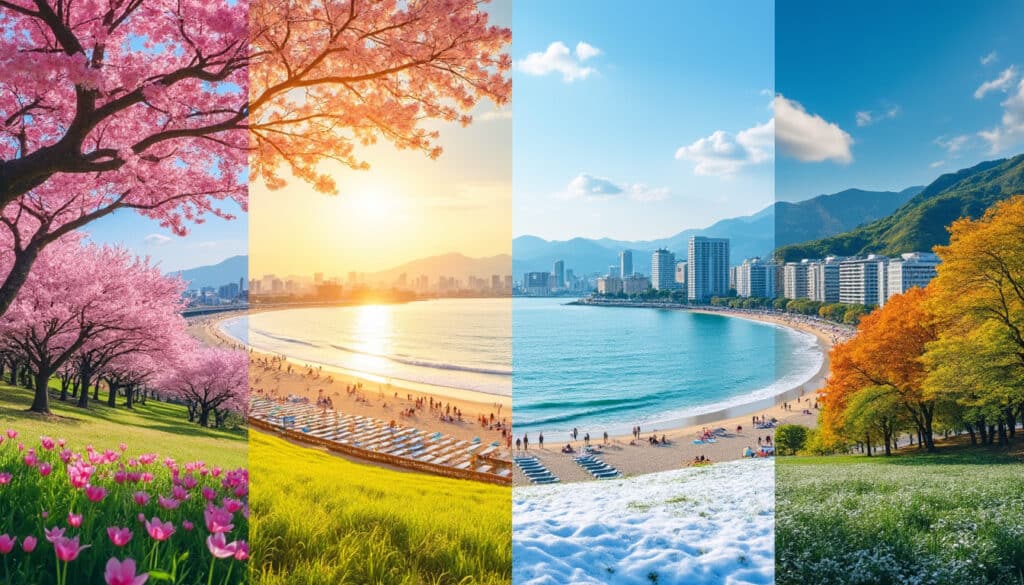
Is Chiba warm throughout the year?
Explore the subtropical charm of Chiba, where the Pacific’s whispers shape the landscape and climate. This Japanese gem, nestled amidst bustling cities and rolling coastlines, presents an intriguing blend of warmth and cultural allure. Whether wandering through cherry blossom lanes…

Rain and precipitation in Chiba
Chiba, located on the east coast of Japan, presents a fascinating climatic profile characterized by significant rainfall distributed throughout the year. This phenomenon plays a crucial role in shaping the lifestyles and environmental framework of the region. Understanding the patterns…
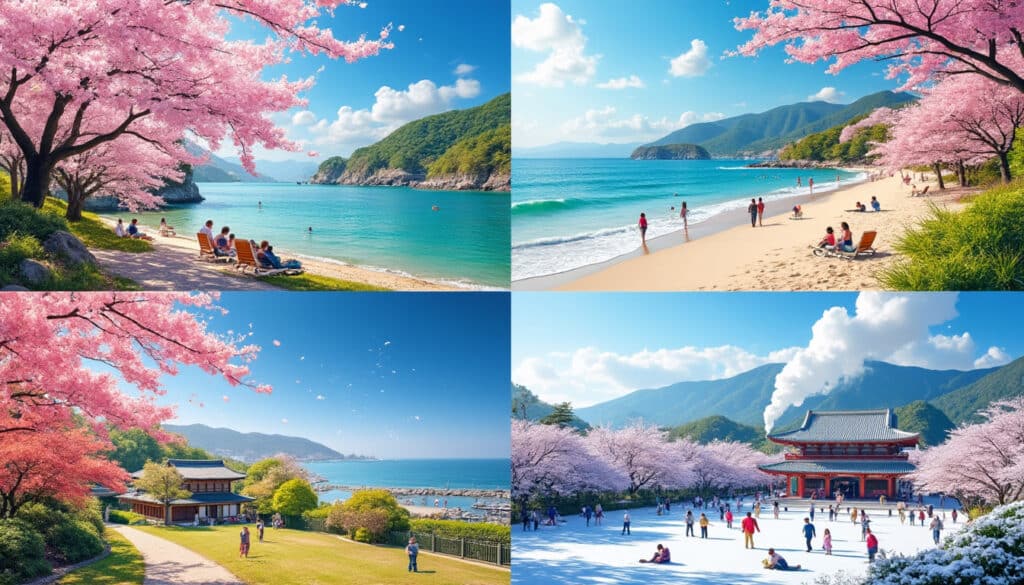
Chiba, located conveniently close to Tokyo, is a region rich with natural beauty, vibrant culture, and a tapestry of seasonal changes that dictate the rhythm of life for its residents. Each season in Chiba brings a unique charm, from the…
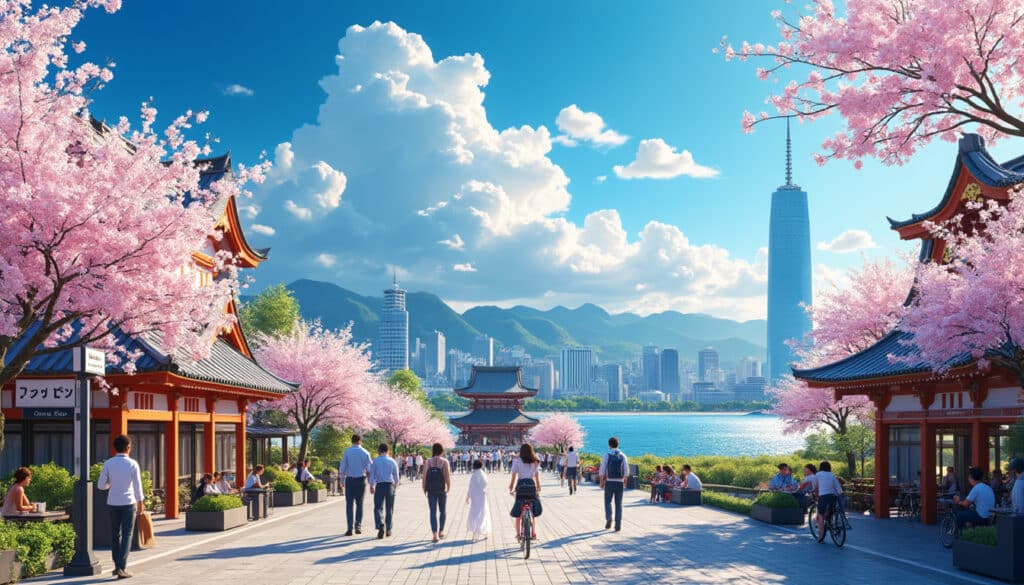
Chiba, Japan offers a diverse and captivating climate that entices both visitors and locals alike. 🌸 From balmy summer days to cool winter nights, this coastal city experiences a harmonious blend of weather patterns due to its humid subtropical climate.…
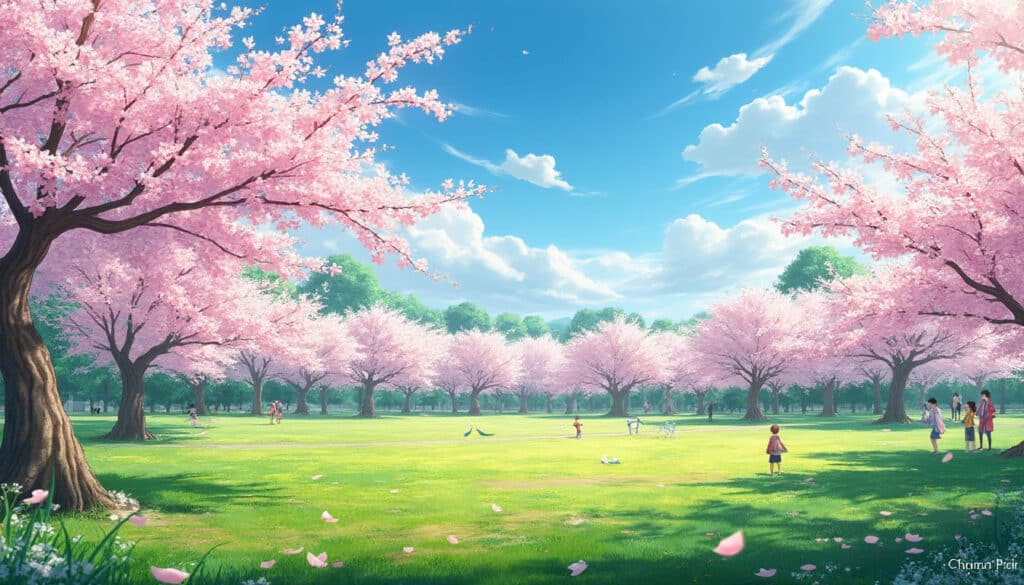
Chiba, a bustling city in Japan, boasts diverse climatic conditions throughout the year, attracting visitors and residents alike who marvel at its unique blend of weather patterns. With its location nestled between the Tokyo Bay and the expansive Pacific Ocean,…
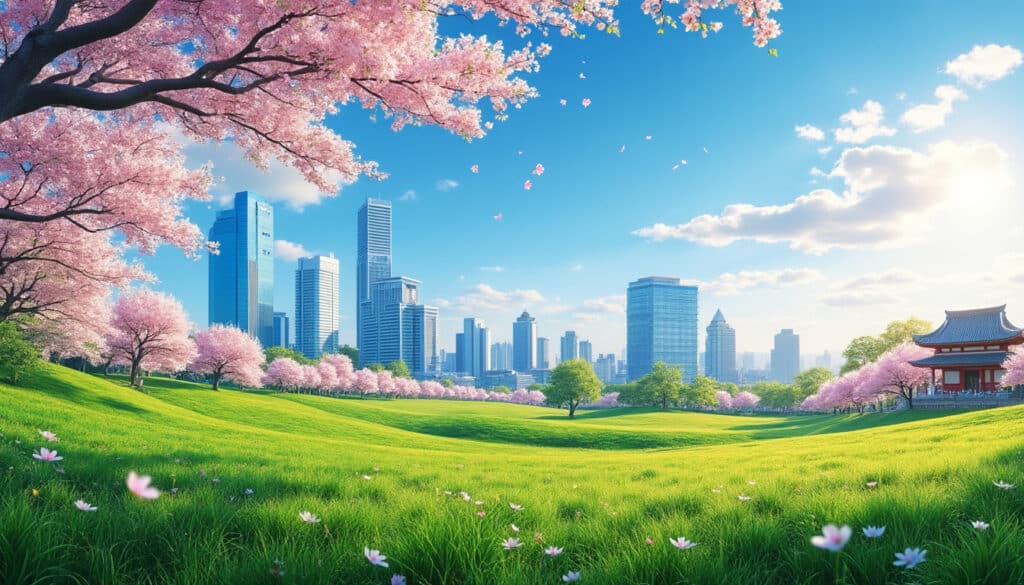
What is the weather like in Chiba?
Home to landscapes as diverse as its cultural tapestry, Chiba’s weather offers a unique blend of natural allure and meteorological challenge. Situated east of Tokyo, this coastal city combines the charm of urban life with the tranquility of nature, attracting…

